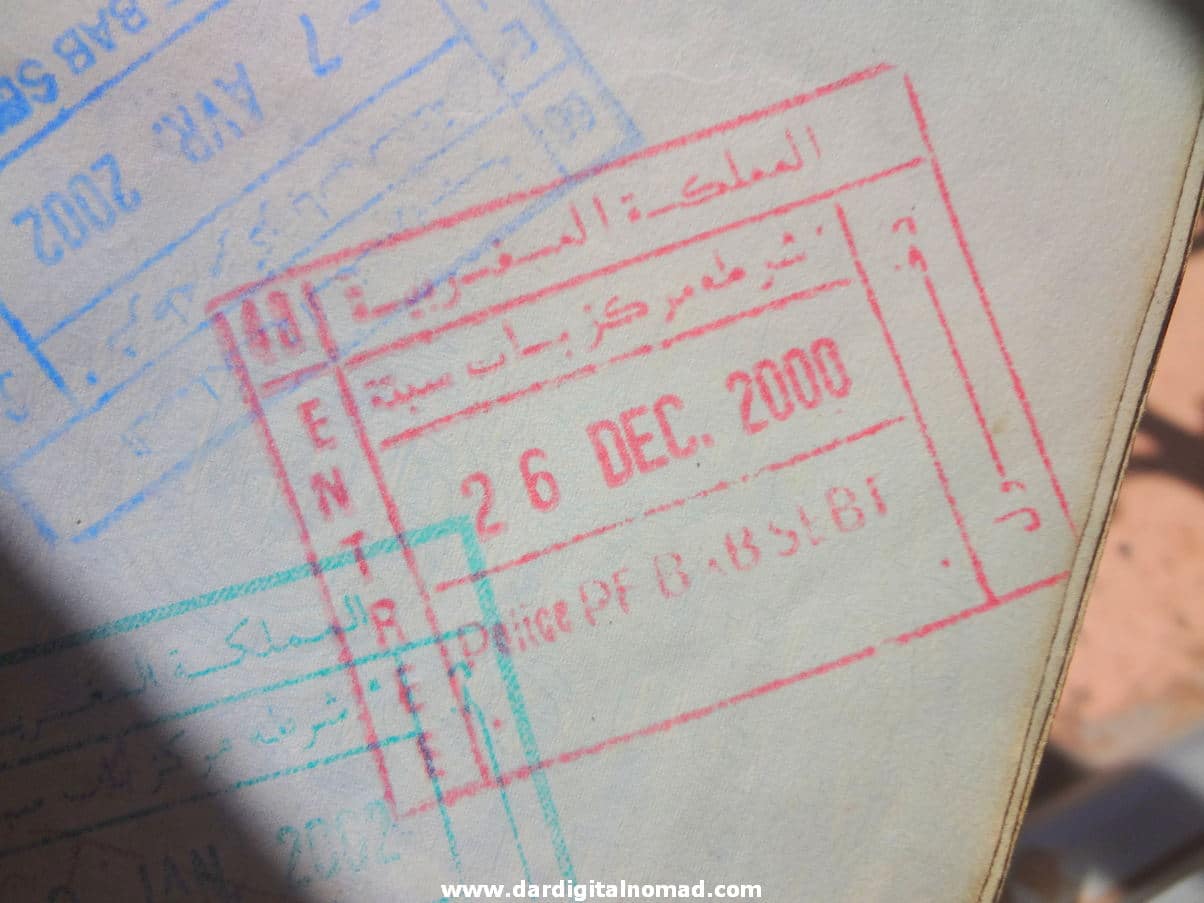Morocco has a simple entryway process for tourists. All you need is a passport, and you’ll get a 90-day stay stamp at the border.
Morocco Visa Information
You might ask yourself if you need a visa to Morocco right?
No, you don’t need a visa to Morocco. You can travel here and get permission to enter the country at the airport or the land border when you travel overland.
It’s very easy and simple.
At the border, you’ll have to fill a form provided by the local authorities or by the airline staff if you’re traveling by plane.
Check the expiry date on your passport because you can only enter Morocco if your passport is valid for at least six months.
Check the expiry date on your passport. If it’s about to expire within six months while traveling in Morocco, the passport control police officer in Morocco won’t let you enter the country.
Citizens of Britain, Australia, New Zealand, Canada, USA, European Union, Turkey, Brazil, and Japan don’t need a visa to Morocco. Citizens from other countries such as Israel, South Africa, Zimbabwe, and Ukraine, for example, will need to apply for a visa before traveling to Morocco.
Portuguese and Brazilian citizens don’t need a visa to Morocco.
Citizens of those countries that need a visa to Morocco can apply for a three-month one-entry visa that will cost around 30 USD.
The citizens of Andorra, Argentina, Bahrain, Chile, Republic of the Congo, Cote d’Ivoire, Guinea, Hungary, Iceland, Indonesia, Korea, Kuwait, Libya, Liechtenstein, Mali, Malta, Mexico, Monaco, Niger, Norway, Oman, Peru, Philippines, Puerto Rico, Qatar, Romania, Saudi Arabia, Senegal, Singapore, Switzerland, Tunisia, United Arab Emirates, and Venezuela can also enter Morocco without a visa.
Keep in mind that if you’re traveling to Morocco from Mali in West Africa, for example, you have to bring your International Certificate of Vaccination for Yellow Fever.
How to stay in Morocco more than 90 days
Are you staying in Morocco for more than 3 months?
If you want to stay in Morocco for more than 3 months, you have to inform the local authorities and apply for a residence permit to stay beyond the three months you’re entitled to.
To apply, you have to visit the police commissioner of the city where you’re staying and request for an extension of your stay.
You have to justify the reason why you’re staying for longer and that document might be difficult to get. The easiest way to stay for more than 3 months is to exit Morocco and enter again.
You can take a flight or, if you want to do it overland, travel to Ceuta and return the next day.
You can also catch the boat from Ceuta to Algeciras and from there to Tarifa to catch the ferry to Tangier.
If all goes well, you can stay in Ceuta for a day or two and return to Morocco where your entry won’t be denied and you can stay for three more months.
Trial and prison time for offenders
If you happen to stay for longer, beyond the three months you’re allowed to, you’re committing a crime. You’ll be arrested by the police and tried at the nearest courthouse.
This is not a serious offense, considering you’ll be taken to a judge who will ask you why you stayed for longer than you were allowed.
Be respectful and answer the judge in a natural way, presenting your reasons. If your case sounds odd, out of the ordinary, or suspicious, you could be in serious trouble.
I don’t recommend you stay beyond the three months you’re allowed considering how easy it is to get three more months just by exiting the country and entering the next day.

